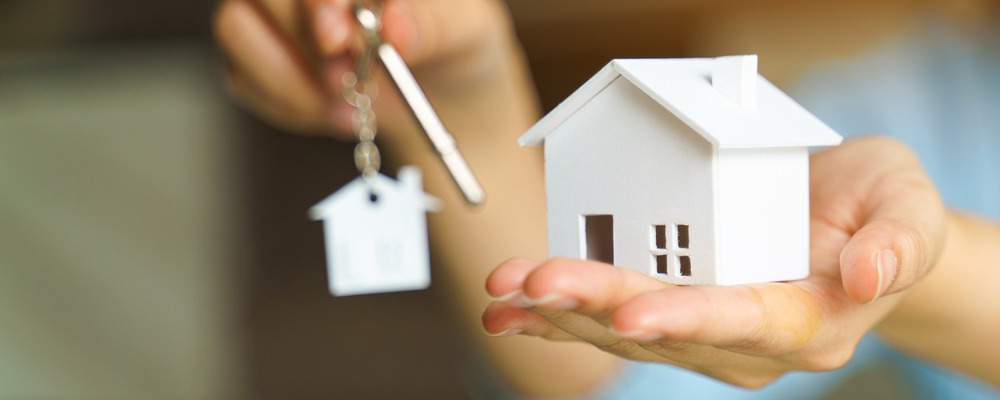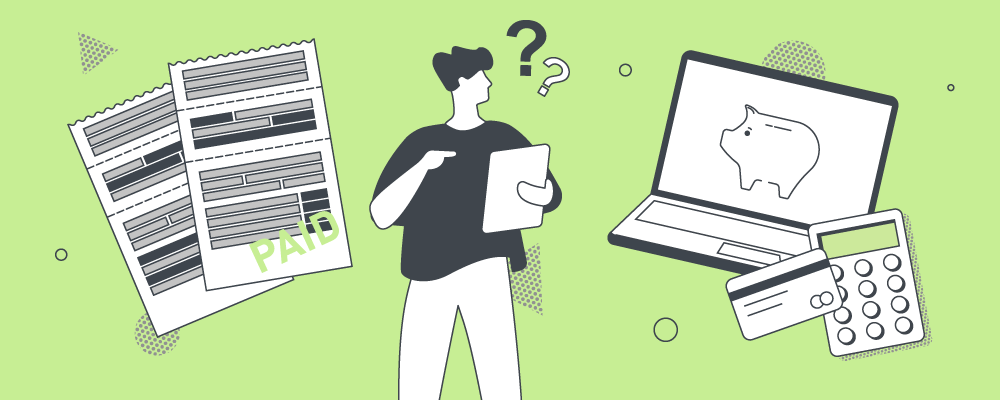
1: Be prepared to compromise
We all have a dreams of buying our first home – your own place to kick-back at the weekend and enjoy time with family and friends. With so much interior design inspiration on social media and TV, buyers could be forgiven for expecting their first home to be perfect.
But as Kirstie Allsopp always says: be prepared to compromise. Your first step on the ladder may not be your dream home, but remember, you’ll be escaping the pain of having housemates or a landlord. That’s got to be worth the compromise.
2: Start saving for your deposit
Once you’re in the right mindset to make
your purchase, the next step is to get your finances sorted. Whether you’re
buying as a couple or on your own, you’re going to need to save for a deposit, unless
you’re lucky enough to be gifted this by a family member.
While many lenders will ask for a deposit of 10%, there are more 5% options available again now. So, if the house you want to purchase is £220,000, you will need between £11,000 and £22,000 for a deposit.
Also, look out for schemes run by local councils to encourage people to move to the area, as well as schemes for key workers and armed forces personnel.
These schemes could help you to keep cash in the bank for other costs, such as solicitors’ fees or stamp duty. Even so, now is the time to open that savings account and cut back on things you can do without, such as holidays, takeaways and TV subscriptions.
3: Get a deposit boost
You could explore ways to boost your first-time buyer pot of gold through schemes such as the lifetime ISA savings account. Under the scheme, you can save up to £4,000 a year, either as a lump sum or by putting in cash whenever you can. Try to put money away in your savings account on the day you get paid, so you’re not tempted to spend it!
Once you’ve saved hard for your deposit, the Government will add a 25% bonus to your pot, as long as you use the money towards your first home. Your home must be valued at less than £450,000 to qualify for the scheme, but that gives first time buyers plenty of wiggle room.
4: Keep saving...
Stay
with us here….unfortunately, your deposit isn’t the only money you will need to
have when buying your first home. You will also need money to pay for stamp
duty, depending on the value of your house, along with solicitor’s fees, a
property survey, and removal costs.
This
is when getting your shoes on the ladder can start to feel like a slog. Stay
positive and think about getting the keys to a home that you own. Surely,
that’s worth a few more months of saving.
The good news is that if you’ve saved for your deposit, you’re most of the way down the line on the things you need to pay for. How much you need to save now really depends on the cost of your house and how savvy you are about getting deals.
If you can buy a house for under £300,000 as a first-time buyer, you won’t pay any Stamp Duty. For properties priced between £300,001 and £500,000, a 5% Stamp Duty rate applies to the portion above £300,000. For other buyers, no Stamp Duty is due on the first £125,000, with a 2% rate between £125,001 and £250,000, and higher rates for more expensive properties. Remember, more expensive houses require higher Stamp Duty fees. Solicitors’ fees can also vary. Some charge a fixed fee, while others charge according to the value of the property you’re buying.
The final costs are a valuation, although many lenders do this for free. It’s also important to have a property survey, particularly if you are buying an older home. This can cost around £400. Then there are moving costs, which can cost anything from £50-£1,000 depending on how much furniture you have, and whether you’re prepared to do some heavy lifting.
We’ll come back to tips on choosing solicitors, surveys and moving costs. For now, let’s check how much you can borrow for your mortgage.

5: Get an Agreement in Principle
There’s no point in hunting for a house to buy if you can’t get a mortgage. So, it’s important to know whether lenders will back you. An Agreement in Principle (AIP) is the first step towards getting a mortgage. It’s a statement that gives you some assurance that a bank or building society will provide a mortgage and crucially, how much you could potentially borrow. While it’s not essential to have an AIP, smart buyers will go armed with one when registering with estate agents. Some estate agents won’t book viewings without an AIP, so it might get you ahead of the pack.
You can usually get an AIP online for free with about 15 minutes of effort. Just find a lender or comparison site, add your salary and regular outgoings and debts. Then a soft credit check will be done to look at your credit history and assess whether a lender would see you as a good prospect. Fingers crossed you’ll be ready to start house hunting.
6: Location, location, location
So
your finances are in place, now comes the exciting part. You can start to book
viewings. When choosing where to look, the location is one of the biggest
decisions you will make. Make a list of the things that are most important to
you, such as a good school or having public transport or restaurants close by.
Then find out the best areas you can afford that give you the things on your list. Remember, our first tip, be prepared to compromise. You may need to look at areas that are just outside your most-desired location to find a house you can afford. Don’t be disheartened, this can be a smart thing to do, especially if this area is up-and-coming.
7: Get your mortgage arranged
Mortgages can be confusing,
especially if it’s your first time. There are lots of different mortgage types,
fees, term lengths and rates you will need to get your head around. There are
two ways you can access the mortgage market – either through an independent
mortgage adviser or by doing the research yourself and going direct to a
lender.
An independent mortgage adviser can help to guide you through the options available to you. They can also demystify some of the jargon to help you to understand what you’re signing-up to, and help you to get the best deal. Often, estate agents will try to persuade you to use their in-house mortgage adviser. Be prepared to say no if their fees are higher or they only source mortgages from a set panel of lenders, rather than looking at everything on the market.
If you’re confident about researching the market yourself, you could arrange your own mortgage. There are lots of comparison websites to help you to compare the best deals. Most lenders make the process of applying for a mortgage straightforward. This could save you the cost of getting mortgage advice.
8: Sign-up to a solicitor
You are going to need a solicitor to handle the legal side of things. It’s best to ask friends, family, colleagues for recommendations. They might be able to tell you about a good experience they had with a reputable solicitor who you could use too. It’s worth knowing that solicitors are notoriously busy, and you will have to nudge them often to get answers to your questions. Be prepared to contact them every other day for updates so that you don’t feel in the dark.
Learn more about the legal steps of buying a new home.

9: Arrange a Property Survey
Once your offer on a house is accepted, and you have your mortgage offer in place, you can arrange a property survey. Your lender may offer this service, or you can find your own surveyor to do this. They can cost upwards of £400, but they are worth doing, as they will check the property for any issues that the untrained eye wouldn’t notice, such as damp. They will determine if the property is worth what you have offered to pay for it, and will flag any issues that either need fixing or may even be a deal breaker.
10: Don't be afraid to ask questions
When you go to your viewings or even after you’ve secured a property, ask questions. Ask about the roof, the electrics, the boiler, any renovations and if these have the necessary building regulations. These are all important things you need to know and will cost you a lot more than just the cosmetic side of things, if they need sorting later down the line. Take pictures of everything. Your solicitor will do searches on the property, but it’s important you find out these things before you put an offer in.
11: Don’t get disheartened if things go wrong
When you find your first home, it’s hard not to get emotionally invested. There can be setbacks and obstacles along the way. If you’re in a chain of sales and purchases, the chain can collapse if one person pulls out, meaning everyone gets stuck waiting for a new buyer or seller.
Then, there can be problems such as gazumping, when a seller accepts an offer on their property, but then goes back on this agreement and accepts a higher offer from another buyer. While this isn’t illegal, it is considered bad practice and pushes the original buyer back onto the market or creates a bidding war. Just be prepared to expect the unexpected.
12: Don’t make yourself homeless
If you’re renting before you move in, be sure that the sale is going ahead before you hand in your notice, as you may end up in a sticky situation if anything goes wrong. It may be worth arranging to move back in with parents for a few months before you buy to boost your savings and to ensure you have somewhere to stay.
13: Accept it’s a long process
Buying a house is a long process. You may be told your purchase will take three months, and often for first time buyers, this is the case. But unless you are buying a new build property or a house with no chain, it often takes longer than three months.
During this time, try to keep your spending in check, so you have money left to buy furniture and accessories when you finally move into your home. But don’t be tempted to buy anything yet, and avoid taking out any new subscriptions or taking on any debt. This could affect the final check that the lender does before releasing your mortgage funds.
14: Exchange and completion
Now you’re so close, you can see the finish
line! If everything goes smoothly, your solicitor will exchange contracts
between the buyer and seller, and you can pay your mortgage deposit. At this
point, you are bound by the contract. This is where you can breathe a sigh of
relief because the house is as good as yours. But, if you change your mind now,
you can lose your deposit, so make sure you are 100% committed to the purchase
before agreeing to exchange contracts.
The final part of the house buying
process is the completion. Your mortgage lender will send the funds to the
seller’s solicitor and hey presto, you’ve bought a home! You can pick-up the
keys and move in.
Find out more about what happens on completion day here.
After all of that hard work, you should celebrate. Just remember, you now have a mortgage to pay!

